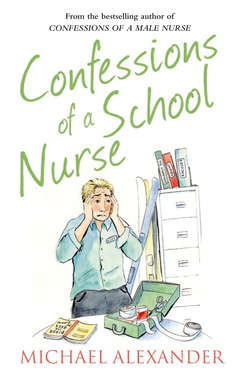Читать книгу Confessions of a School Nurse - Michael Alexander - Страница 25
The crush
ОглавлениеIt’s nice to feel appreciated; it only takes a kind word or gesture to transform an average day, or even an awful day, into a bright one. Something as simple as a kind note left on your desk can work wonders. But things can often turn complicated when dealing with adolescents.
Chocolates are a relatively simple gift (as long as they’re not Russian, they taste awful). Chocolates are my go to present when I want to make a gesture of appreciation.
Alcohol is a common gift to staff from students – each nationality brings me their country’s best. From any student from Eastern Europe, vodka is the weapon of choice, with every vodka-producing nation naturally insisting its product is the best. From the Mexican students, it’s always tequila; cachaça from the Brazilians; and single malt whisky for most of the Western nations, as well as, perhaps surprisingly, the Saudi students.
Usually parents buy the gift and send their child to school loaded with hard spirits. The gesture is always appreciated, and the child is proud to show off the finest alcohol their nation can produce.
But sometimes people want to give more.
Teenagers are spontaneous, their emotions high one moment, low the next. Their feelings are intense and these little gifts of appreciation are sometimes just not a big enough gesture.
How can they find a way to express their gratitude to the person who changed their failing grade from a D to a B, especially when school is not just the biggest thing in their life at that time, it is their whole life? How can they thank the person who comforted them when they were homesick, or helped them fit in and make friends?
‘I can’t thank you enough. You’re the best’ – the note was signed ‘Priscilla’. The letter was for my friend, Brian, a maths teacher.
‘She worked for it,’ Brian said. ‘She went to every extra help session I gave, and still wanted more.’ Brian explained that she had been willing to pay for private lessons on top of the regular after school group sessions, but he’d refused. ‘You turned down 100 euros an hour?’ Maths and physics teachers were always in demand, and tutors could get away with charging such a heavy fee.
‘That’s actually why I’m here,’ Brian said. ‘I wanted your expert opinion.’ I motioned for him to continue. ‘Is she ADHD or something?’ he asked. ‘Or seeing the counsellor for any issues?’ I asked him why he thought she might have ‘issues’ and to tell me exactly what she does that makes him think so.
Many teachers have concerns about their students, and often say things like ‘she’s ADHD’ or describe someone as ‘bipolar’. Even the most well-meaning people throw these terms out there, and nearly every time it’s wrong, but labels can stick. I need to find out what the student is actually doing that is causing concern.
Do they talk non-stop in class? Do they interrupt others? Are they aggressive or act like a bully? Do they do their work? Do they say strange things?
Priscilla, Brian explained, did all of the above, particularly constantly talk in class, disturb others, and struggle with work – hence the extra help to enable her to pass Maths. Like many fifteen-year-old girls, she lived her life as if on a permanent emotional rollercoaster. Fortunately for her, and us, it was a rollercoaster with peaks of pure joy, and not particularly deep lows.
But it wasn’t this behaviour that bothered him, as it’s pretty normal.
‘She follows me … everywhere,’ he added. Priscilla had changed her activity from volleyball (which she loved) to hiking (which Brian led). ‘She won’t stop staring at me in class, and is always the last to leave. She’s even got her mum on her side, insisting I continue with her private lessons. She’s obsessed. She’s even said she’s got a surprise for my birthday next week.’
I promised to pass on his concerns to the counsellor, although I didn’t think the matter urgent. ‘A bit of a crush,’ I remember saying so clearly. No one could have anticipated the surprise she had in store for him.
It wasn’t just any birthday, it was Brian’s fortieth and understandably his students enjoyed teasing him about becoming officially old (or ‘ancient’, as they called it). Priscilla didn’t join in the banter, instead she enlisted the help of her peers.
As Brian turned up to class the following week on the day of his birthday, he did what he always did at the start of a lesson and took the register. Everyone was present bar one. When he called out ‘Priscilla’ the music began.
Priscilla entered the room, dressed in a flimsy white dress, and began to sing happy birthday. It wasn’t your typical ‘happy birthday’ where everyone joins in. Priscilla must have seen Marilyn Monroe singing happy birthday to a naughty president at some stage, and thought Brian would appreciate the gesture.
What does one do when confronted by a flirtatious teenager?
You politely interrupt, say ‘thank you’ and explain that the classroom is not the right place for such behaviour.
Of course, it’s not always that easy. ‘She was so serious,’ Brian described later, ‘it would’ve crushed her if I’d made her stop straight away.’ Instead, he ended up saying things like ‘it’s unique’ and ‘unforgettable’ while trying to avoid actual words of encouragement.
